[News Focus] How will Korean industries fare with new US president?
As world watches US election on knife edge, prospects mixed for Korean exporters
By Korea HeraldPublished : Nov. 5, 2020 - 16:39

As the world pensively watches the cutthroat US presidential election unfold to uncertain weeks ahead, Democrat candidate Joe Biden appeared to have the upper hand, as of Thursday here.
South Korean industries have been bracing for either scenario, with prospects varying among major exporting industries of information technology, energy, batteries, steel, pharmaceuticals and others.
With the trade protectionism trend expected to remain part of the mainstream, the tone of the trade war between the US and China may be tweaked, while the emphasis on the environment may shift, according to industry watchers.
Here are the prospects for Korea’s key economic engines.
Semiconductors
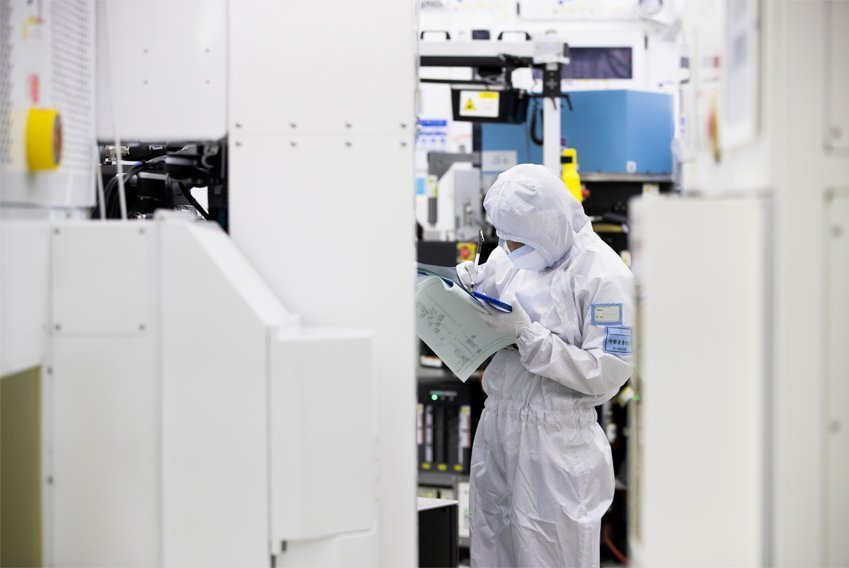
The semiconductors industry has two paramount issues to consider when forecasting its growth prospects: the market cycle determined by supply and demand and the trade dispute between the US and China.
Industry officials have low expectations of radical changes in the US government’s stance against China and Chinese tech giant Huawei, even if Biden punches his ticket for the White House.
While Biden has criticized Trump’s policies toward China, Biden’s would be more like a change of tactics than a strategy overhaul.
“It looks like the new US government’s foreign policies would have no dramatic changes, which is neither favorable nor unfavorable for the semiconductor industry,” said an industry official.
Officials at Korean semiconductor manufacturers think that the current exports ban on the companies that have Huawei as a major customer would be maintained, regardless of the election result.
“Unlike Trump, Biden would take gradual moves in the US-China trade relations, which wouldn’t bring about drastic changes to the semiconductor industry,” another official said.
Rather than being concerned about the industry itself, Korean chipmaker officials pay more attention to Biden’s economic policies that might affect Big Tech in the US.
“A Democratic president’s traditional tax policies toward billionaires and Big Tech companies might undermine businesses’ investment sentiment,” an industry insider said. “Korean chipmakers’ big customers, especially large-scale data center companies, would face stronger regulations and sanctions under the Democratic administration.”
Automobiles
Industry officials have low expectations of radical changes in the US government’s stance against China and Chinese tech giant Huawei, even if Biden punches his ticket for the White House.
While Biden has criticized Trump’s policies toward China, Biden’s would be more like a change of tactics than a strategy overhaul.
“It looks like the new US government’s foreign policies would have no dramatic changes, which is neither favorable nor unfavorable for the semiconductor industry,” said an industry official.
Officials at Korean semiconductor manufacturers think that the current exports ban on the companies that have Huawei as a major customer would be maintained, regardless of the election result.
“Unlike Trump, Biden would take gradual moves in the US-China trade relations, which wouldn’t bring about drastic changes to the semiconductor industry,” another official said.
Rather than being concerned about the industry itself, Korean chipmaker officials pay more attention to Biden’s economic policies that might affect Big Tech in the US.
“A Democratic president’s traditional tax policies toward billionaires and Big Tech companies might undermine businesses’ investment sentiment,” an industry insider said. “Korean chipmakers’ big customers, especially large-scale data center companies, would face stronger regulations and sanctions under the Democratic administration.”
Automobiles

Biden values solidarity with allies, but also could be just as protectionist as Trump, and may continue to push for protectionist trade policies, according to industry watchers.
Currently, the Trump administration is discussing a 24 percent tariff on imported cars, including Korean vehicles, to protect the local automobile industry.
Michael McAdoo, partner and director of Boston Consulting Group, said in a recent seminar that if Biden is elected tariffs may be eased by executive order, but the possibility of going the other way also cannot be ruled out.
Currently, the US is the largest market for Korea’s biggest automakers Hyundai Motor and Kia Motors. Although Hyundai and Kia produce cars in Alabama and Georgia, respectively, the tariffs would still negatively affect their exports.
Biden’s emphasis on eco-friendly policies would be a boost to the development of electric and hydrogen vehicles, should he take office.
Hyundai Motor and Kia Motors are already heavily investing in electric vehicles and hydrogen cars, in line with the global environmentalism trend, but the move would be further accelerated.
Batteries
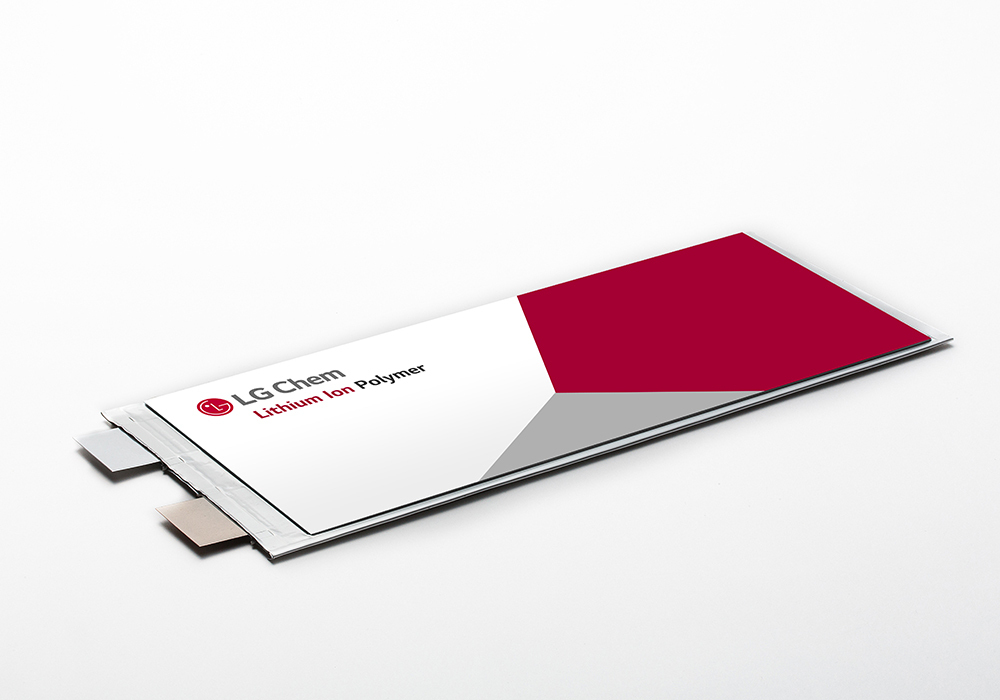
A change in the US administration would bring both pros and cons for South Korean battery giants, though it’s undeniable that Biden’s push for electric vehicles will drive up overall demand for the batteries, should the Democrat win.
For LG Chem and SK Innovation, which are building battery manufacturing plants in Ohio and Georgia, respectively, Biden’s win may not necessarily be good news, as Trump has been more eager in providing incentives to attract foreign investment.
“Of course, if Biden’s elected, it will become a boost to the battery market, but Trump offers more tax breaks to foreign companies in exchange for creating jobs in the US,” an industry official said.
However, Biden’s arrival could eliminate uncertainties Trump has brought in the battery lawsuit between LG Chem and SK Innovation.
If the US International Trade Commission upholds the default judgement for its final ruling set for Dec. 10, SK Innovation will have to halt imports to the US.
Last December, the Wall Street Journal posted an article that forecast that the Trump administration, which wants to create more factories and jobs in the United States, might be tempted to be lenient toward SK Innovation.
“The possibility of the veto on the upcoming USITC’s final ruling emerged in the first place because the president is Trump,” an industry watcher said.
Energy
For LG Chem and SK Innovation, which are building battery manufacturing plants in Ohio and Georgia, respectively, Biden’s win may not necessarily be good news, as Trump has been more eager in providing incentives to attract foreign investment.
“Of course, if Biden’s elected, it will become a boost to the battery market, but Trump offers more tax breaks to foreign companies in exchange for creating jobs in the US,” an industry official said.
However, Biden’s arrival could eliminate uncertainties Trump has brought in the battery lawsuit between LG Chem and SK Innovation.
If the US International Trade Commission upholds the default judgement for its final ruling set for Dec. 10, SK Innovation will have to halt imports to the US.
Last December, the Wall Street Journal posted an article that forecast that the Trump administration, which wants to create more factories and jobs in the United States, might be tempted to be lenient toward SK Innovation.
“The possibility of the veto on the upcoming USITC’s final ruling emerged in the first place because the president is Trump,” an industry watcher said.
Energy
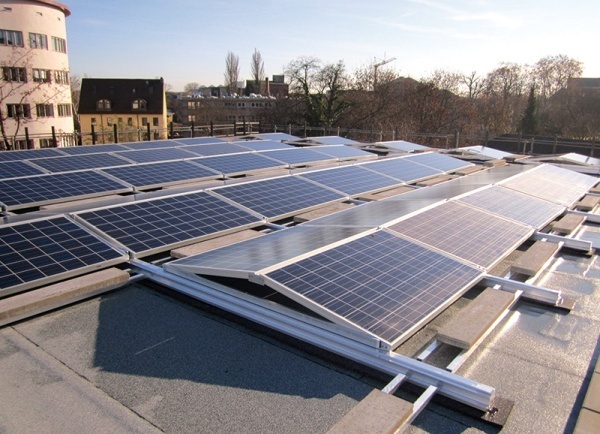
Should he win, Biden’s renewable energy pledge to roll out 500 million solar modules and 60,000 wind turbines would give a further boost to Samsung SDI and LG Chem’s energy storage systems businesses.
Biden’s aggressive transition to solar and wind power is expected to open up a huge market, but it remains to be seen whether Korean companies will be able to take full advantage of opportunities that lie ahead.
Things could become complex for companies like Hanwha Q Cells.
“Biden’s plan to roll out 500 million solar modules will definitely grow the market’s pie, but it may provide an opening for Chinese competitors to enter the market,” one official said.
“Though Trump and Biden are both aggressive on China, compared to Trump, Biden is less aggressive. Trump has imposed tariffs on foreign solar modules imported from countries such as Korea and China to protect the domestic industry, but Biden has yet to come up with a specific plan on tariffs on foreign solar products.”
After taking office, Trump slapped imported solar modules with a 30 percent tariff in 2018 and a 25 percent tariff the next year. This year, the tariff stands at 20 percent, and it is scheduled to go down to 15 percent next year.
Hanwha Q Cells has been exempt from this trade regulation as it runs a solar module factory in Georgia with 1.7 gigawatts in capacity.
Meanwhile, Korea’s wind power industry is unprepared to benefit from Biden’s renewable energy drive.
“Though Doosan Heavy Industries & Construction has installed about 100 megawatts of wind turbines in Korea, the company’s wind turbines lack enough track record eligible for export,” Korea Wind Energy Association Chairman Yoo Ki-wan said.
“When Europe, China and the US conduct wind power projects, they keep to themselves and are very hostile to foreign players. Korea’s wind power industry is very young and lacks enough influence to penetrate those countries.”
Moreover, the coronavirus outbreak is likely to play a key role.
“When Biden tries to stimulate the economy hampered by the pandemic through his renewable energy initiative, his support is likely to be concentrated on domestic companies first,” a wind power industry official said.
Pharmaceuticals
Biden’s aggressive transition to solar and wind power is expected to open up a huge market, but it remains to be seen whether Korean companies will be able to take full advantage of opportunities that lie ahead.
Things could become complex for companies like Hanwha Q Cells.
“Biden’s plan to roll out 500 million solar modules will definitely grow the market’s pie, but it may provide an opening for Chinese competitors to enter the market,” one official said.
“Though Trump and Biden are both aggressive on China, compared to Trump, Biden is less aggressive. Trump has imposed tariffs on foreign solar modules imported from countries such as Korea and China to protect the domestic industry, but Biden has yet to come up with a specific plan on tariffs on foreign solar products.”
After taking office, Trump slapped imported solar modules with a 30 percent tariff in 2018 and a 25 percent tariff the next year. This year, the tariff stands at 20 percent, and it is scheduled to go down to 15 percent next year.
Hanwha Q Cells has been exempt from this trade regulation as it runs a solar module factory in Georgia with 1.7 gigawatts in capacity.
Meanwhile, Korea’s wind power industry is unprepared to benefit from Biden’s renewable energy drive.
“Though Doosan Heavy Industries & Construction has installed about 100 megawatts of wind turbines in Korea, the company’s wind turbines lack enough track record eligible for export,” Korea Wind Energy Association Chairman Yoo Ki-wan said.
“When Europe, China and the US conduct wind power projects, they keep to themselves and are very hostile to foreign players. Korea’s wind power industry is very young and lacks enough influence to penetrate those countries.”
Moreover, the coronavirus outbreak is likely to play a key role.
“When Biden tries to stimulate the economy hampered by the pandemic through his renewable energy initiative, his support is likely to be concentrated on domestic companies first,” a wind power industry official said.
Pharmaceuticals
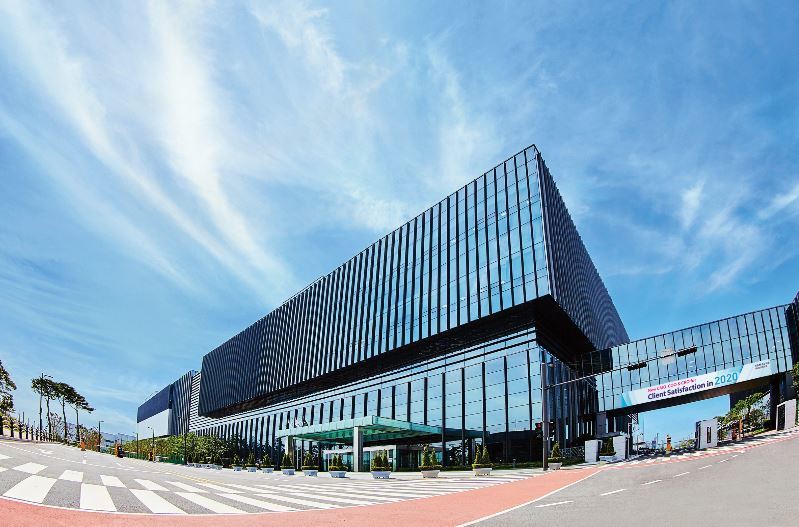
Having a president who does not dismiss the COVID-19 pandemic as a conspiracy or ruse will draw a new picture for US health care plans. The US, home to leading bio and pharmaceutical powerhouses, is knit in with the rest of the world through various pharmaceutical license and collaboration deals. Whatever goes on in the country is likely to create ripple effects for its trade partners.
For one, Biden has said that he would ensure adequate availability of test kits nationwide and mandate the wearing of masks as part of efforts to fight the pandemic. This could spell more exports for Korean health care supplies, which has had an extraordinary year in 2020 for overseas COVID-19 test kit sales.
In their pledges and speeches, candidates Biden and Trump have shown a contrasting stance in regards to the level of importance they place on biologics and pharmaceutical businesses.
While the Trump administration had proposed a 7 percent cut in the National Institute of Health’s budget for 2021 from the previous year’s $41 billion to $38.7 billion, Biden has counterproposed “major increases” in NIH funding, albeit without specific enumeration.
Biden has also said that he would protect and build on the Affordable Care Act, popularly referred to as the Obamacare, which promotes state-sponsored health insurance and medical care for all.
Both candidates had said they would curb escalating drug prices for better patient care.
As ballot counting continued Thursday, with the needles tilting in favor of Biden, Korean pharma firms speaking to The Korea Herald expressed hopes for less protective trade with the US.
Several Korean companies have stakes in the US election results, the most immediately notable ones being SK Holdings, whose US contract manufacturing organization Ampac Fine Chemicals in May was selected by the Trump administration to produce essential pharmaceutical ingredients for drugs that tackle COVID-19 symptoms. Also closely following the elections are Daewoong Pharmaceutical and Medytox, whose lawsuit in the US for trade secret protection pends a presidential review.
An SK Holdings official told The Korea Herald that whoever comes out as the winner of the election will open a new era to look forward to.
Steel
For one, Biden has said that he would ensure adequate availability of test kits nationwide and mandate the wearing of masks as part of efforts to fight the pandemic. This could spell more exports for Korean health care supplies, which has had an extraordinary year in 2020 for overseas COVID-19 test kit sales.
In their pledges and speeches, candidates Biden and Trump have shown a contrasting stance in regards to the level of importance they place on biologics and pharmaceutical businesses.
While the Trump administration had proposed a 7 percent cut in the National Institute of Health’s budget for 2021 from the previous year’s $41 billion to $38.7 billion, Biden has counterproposed “major increases” in NIH funding, albeit without specific enumeration.
Biden has also said that he would protect and build on the Affordable Care Act, popularly referred to as the Obamacare, which promotes state-sponsored health insurance and medical care for all.
Both candidates had said they would curb escalating drug prices for better patient care.
As ballot counting continued Thursday, with the needles tilting in favor of Biden, Korean pharma firms speaking to The Korea Herald expressed hopes for less protective trade with the US.
Several Korean companies have stakes in the US election results, the most immediately notable ones being SK Holdings, whose US contract manufacturing organization Ampac Fine Chemicals in May was selected by the Trump administration to produce essential pharmaceutical ingredients for drugs that tackle COVID-19 symptoms. Also closely following the elections are Daewoong Pharmaceutical and Medytox, whose lawsuit in the US for trade secret protection pends a presidential review.
An SK Holdings official told The Korea Herald that whoever comes out as the winner of the election will open a new era to look forward to.
Steel
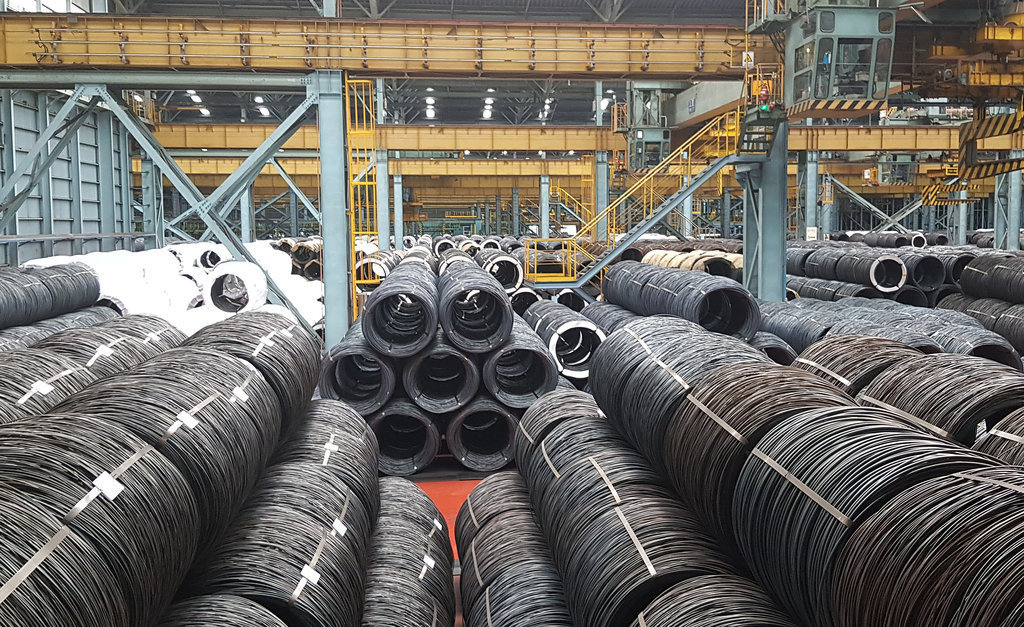
With the next American president in office, trade barriers for South Korea’s steel industry are likely to remain, with additional nontariff regulations, industry watchers say.
Under the Trump administration’s protectionist approach, Korea’s steel businesses stood at an unfavorable position, especially with his anti-dumping tariffs specifically targeting steel imports.
Overall, steel exports for Korea have decreased in the past years. The revival of the US’ Trade Expansion Act Section 232 in 2018 led the South Korean government to accept trade quotas for Korea’s steel products in exchange for tariff exemptions.
The quota for steel products was 70 percent of the average annual exports of the years from 2015 to 2017. Aluminum was imposed with a tariff of 10 percent.
While Biden appears to not be too far from Trump’s direction in protecting the domestic economy, observers believe the tariff regulations in trade could be relieved should he win.
Still, his focus on labor and environmental standards is likely to raise nontariff barriers for the steel industry.
Biden’s commitment for “a clean energy future” will lead to the introduction of new trade regulations, such as the carbon border adjustment, according to an industry official, and this will affect sales of steel products with high carbon emissions.
In addition, the steel industry has been one of the most sensitive business sectors to be affected by the US presidential election, according to an analysis by the Federation of Korean Industries.
In the FKI report looking at the average growth rate for exports from 1988 to 2018, the country’s steel industry recorded 20.7 percent in all years except for the years just after the US presidential election took place -- when the average growth rate stood at minus 8.1 percent.
Telecommunications
Under the Trump administration’s protectionist approach, Korea’s steel businesses stood at an unfavorable position, especially with his anti-dumping tariffs specifically targeting steel imports.
Overall, steel exports for Korea have decreased in the past years. The revival of the US’ Trade Expansion Act Section 232 in 2018 led the South Korean government to accept trade quotas for Korea’s steel products in exchange for tariff exemptions.
The quota for steel products was 70 percent of the average annual exports of the years from 2015 to 2017. Aluminum was imposed with a tariff of 10 percent.
While Biden appears to not be too far from Trump’s direction in protecting the domestic economy, observers believe the tariff regulations in trade could be relieved should he win.
Still, his focus on labor and environmental standards is likely to raise nontariff barriers for the steel industry.
Biden’s commitment for “a clean energy future” will lead to the introduction of new trade regulations, such as the carbon border adjustment, according to an industry official, and this will affect sales of steel products with high carbon emissions.
In addition, the steel industry has been one of the most sensitive business sectors to be affected by the US presidential election, according to an analysis by the Federation of Korean Industries.
In the FKI report looking at the average growth rate for exports from 1988 to 2018, the country’s steel industry recorded 20.7 percent in all years except for the years just after the US presidential election took place -- when the average growth rate stood at minus 8.1 percent.
Telecommunications
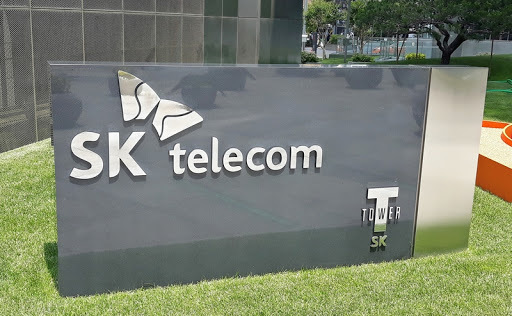
Uncertainty hangs on the hook for the telecommunications equipment sector in Korea, as local network equipment providers will have to observe how the new president will push ahead with policies regarding the US network infrastructure.
Biden’s election would put a hold on existing investment plans in the network infrastructure.
Biden during his campaign pledged to invest $20 billion in rural broadband as part of a larger infrastructure package, while tripling the US Department of Agriculture’s rural broadband grants. Biden also mentioned 5G as part of his $300 billion investment in research and development.
On the other hand, Trump previously introduced a few policies regarding network infrastructure -- including the Federal Communications Commission’s plan to provide broadband to over 6 million unserved homes and businesses and an infrastructure package designed to spur a total of $1.5 trillion of investment for infrastructure projects.
Potential changes in investment plans would force exporters to reassess, as they would have to readjust their existing market strategies, according to an official from a local network equipment provider.
Meanwhile, Biden’s tough line on China would still work in the favor of South Korean network equipment firms, as it would prevent Chinese network equipment firms -- the biggest competitors -- from entering the US market.
By the Business Desk
(song@heraldcorp.com)
(shinjh@heraldcorp.com)
(herim@heraldcorp.com)
(kaylalim@heraldcorp.com)
(ws@heraldcorp.com)
(kbw@heraldcorp.com)
Biden’s election would put a hold on existing investment plans in the network infrastructure.
Biden during his campaign pledged to invest $20 billion in rural broadband as part of a larger infrastructure package, while tripling the US Department of Agriculture’s rural broadband grants. Biden also mentioned 5G as part of his $300 billion investment in research and development.
On the other hand, Trump previously introduced a few policies regarding network infrastructure -- including the Federal Communications Commission’s plan to provide broadband to over 6 million unserved homes and businesses and an infrastructure package designed to spur a total of $1.5 trillion of investment for infrastructure projects.
Potential changes in investment plans would force exporters to reassess, as they would have to readjust their existing market strategies, according to an official from a local network equipment provider.
Meanwhile, Biden’s tough line on China would still work in the favor of South Korean network equipment firms, as it would prevent Chinese network equipment firms -- the biggest competitors -- from entering the US market.
By the Business Desk
(song@heraldcorp.com)
(shinjh@heraldcorp.com)
(herim@heraldcorp.com)
(kaylalim@heraldcorp.com)
(ws@heraldcorp.com)
(kbw@heraldcorp.com)
-
Articles by Korea Herald






![[From the Scene] Monks, Buddhists hail return of remains of Buddhas](http://res.heraldm.com/phpwas/restmb_idxmake.php?idx=644&simg=/content/image/2024/04/19/20240419050617_0.jpg&u=20240419175937)









![[From the Scene] Monks, Buddhists hail return of remains of Buddhas](http://res.heraldm.com/phpwas/restmb_idxmake.php?idx=652&simg=/content/image/2024/04/19/20240419050617_0.jpg&u=20240419175937)

![[KH Explains] Hyundai's full hybrid edge to pay off amid slow transition to pure EVs](http://res.heraldm.com/phpwas/restmb_idxmake.php?idx=652&simg=/content/image/2024/04/18/20240418050645_0.jpg&u=20240419100350)

![[Today’s K-pop] Illit drops debut single remix](http://res.heraldm.com/phpwas/restmb_idxmake.php?idx=642&simg=/content/image/2024/04/19/20240419050612_0.jpg&u=)